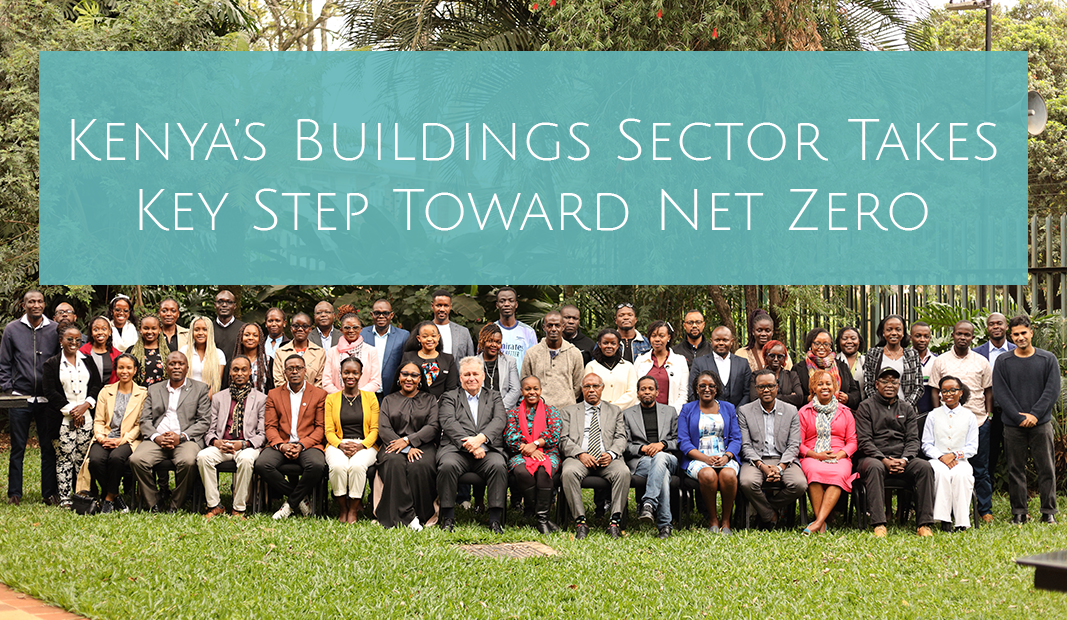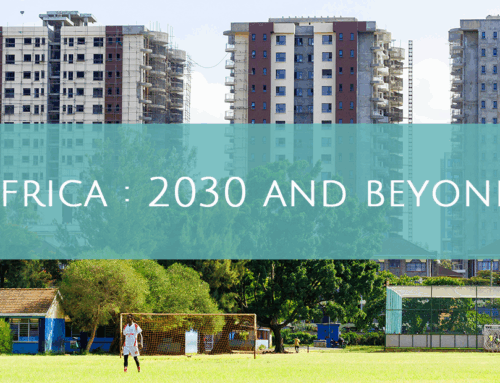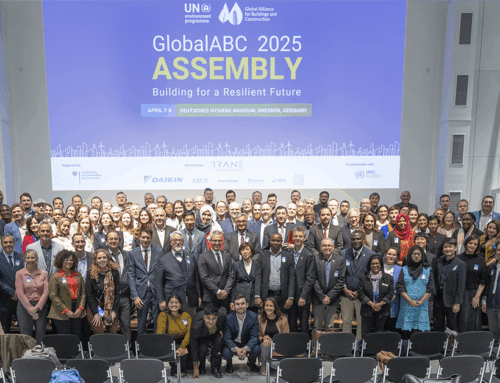Kenyan building industry stakeholders validate Baseline Assessment Report of the National Buildings and Construction Decarbonization Roadmap
Kenya has taken a critical step forward in its efforts to decarbonize the buildings and construction sector. The Baseline Assessment Report of the National Buildings and Construction Decarbonization Roadmap, was presented at the workshop and validated at a recent stakeholder engagement workshop. The workshop, the fourth in the ongoing engagement, brought together regulators, policy makers, architects, engineers, planners, construction managers, and other stakeholders from government, academia and private sectors. The project is led by the State Department of Public Works and supported by GBPN in collaboration with other stakeholders.
Evidence-based target setting
 The Baseline assessment report was developed by GBPN through our unique bottom-up, multi-stakeholder approach to drive equitable climate action in the built environment. Mugure Njendu, Africa Program Development Consultant said that the report provides a clear picture of Kenya’s current and projected emissions from buildings and construction.
The Baseline assessment report was developed by GBPN through our unique bottom-up, multi-stakeholder approach to drive equitable climate action in the built environment. Mugure Njendu, Africa Program Development Consultant said that the report provides a clear picture of Kenya’s current and projected emissions from buildings and construction.
“The findings from the Baseline Assessment Report show that under a targeted decarbonization pathway, emissions could fall from 13 MtCO₂ to approximately 4.03 MtCO₂ by 2050,” Ms. Njendu said.
“This represents a 69% reduction and places Kenya in a strong position to meet its commitments under the Buildings Breakthrough initiative.”
Kenya’s role as Co-chair of the Intergovernmental Council for Buildings and Climate gives added weight to its national roadmap, signalling leadership across Africa and beyond.
Stakeholders Call for Collective Action
Architect Arabbu, President of the Architectural Association of Kenya, emphasized the importance of shared responsibility.
“It’s important to have all hands on deck now—share data and give feedback.”
Kennedy Matheka – National Coordinator,Buildings and Climate Resilience, echoed the message, urging professionals to remain engaged as the process enters its next phase.
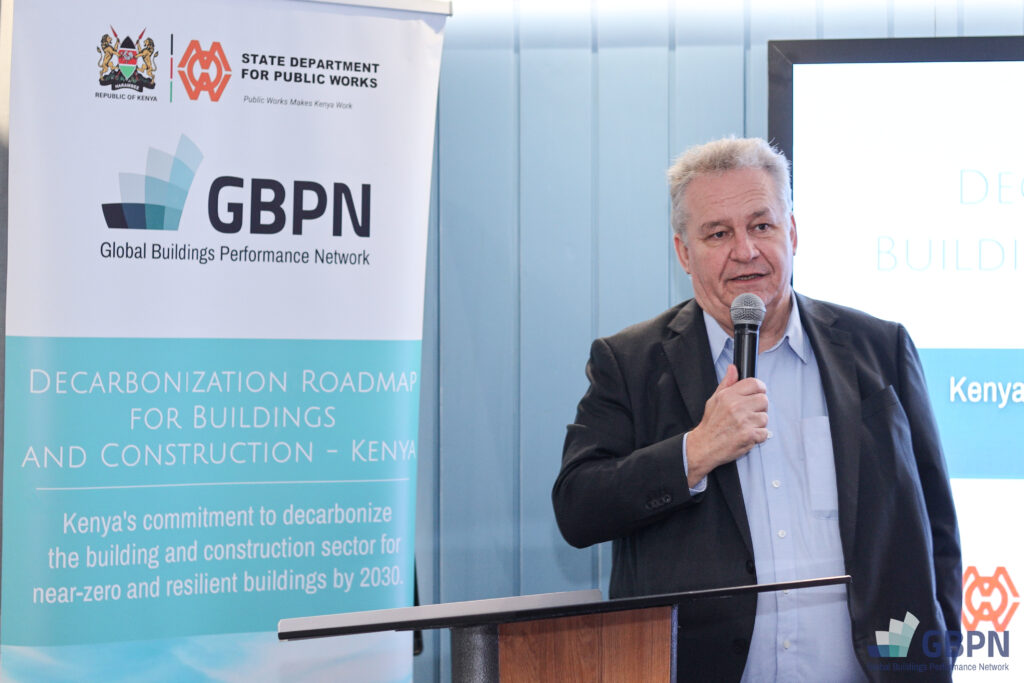
The Belgian Ambassador to Kenya, His Excellency, Peter Maddens highlighted practical action during his remarks.
“Each new building and retrofit should have at least one green intervention.”
He presented the case of Belgium’s net-zero embassy and residence in Nairobi as an example of what is possible through clear policy direction and design integration.
Focus on Green Finance
Financing emerged as a central theme during the workshop’s capacity-building masterclass on “Green Financing for Sustainable Buildings,” facilitated by Sandy Okoth of FSD Africa and John Kabuye of Acorn Holdings. The session introduced tools and approaches available within the green finance ecosystem and explored barriers currently faced by developers and policymakers alike.
Participants worked through real-world scenarios to better understand how financial mechanisms can support the goals outlined in the roadmap, linking economic realities with policy ambition.
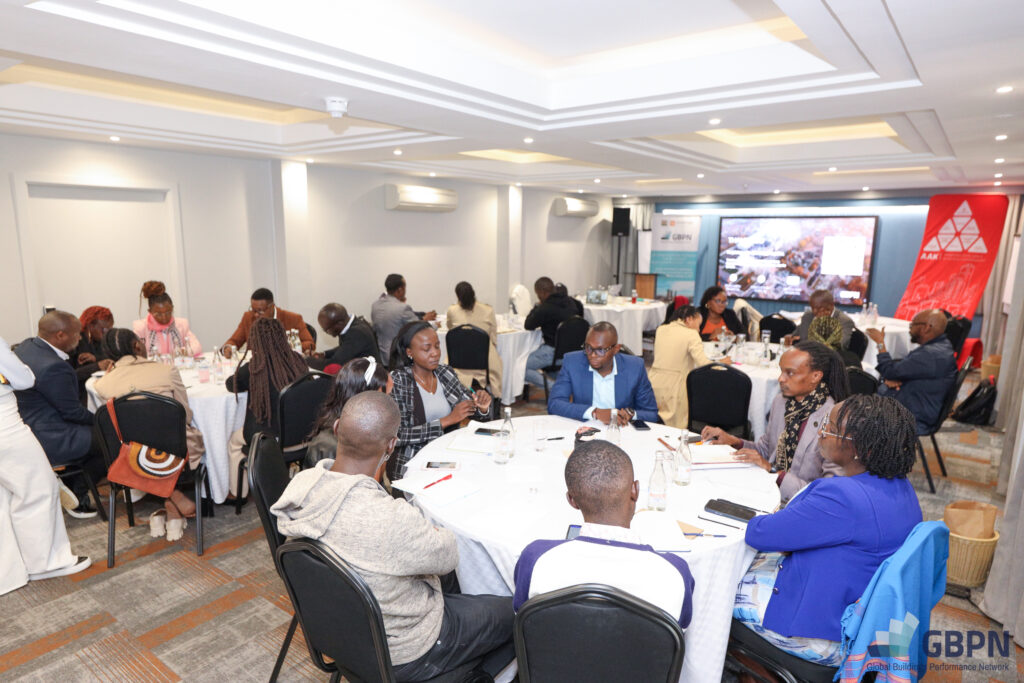
Participants at the Green Financing for Sustainable Building masterclass at the Workshop
Aligning Sector Priorities with National Climate Goals
As part of GBPN’s ongoing technical support to the national government, the workshop included a presentation by UNEP NDC Consultant Arch. Nickson Otieno on Kenya’s NDC Position Paper. The process leverages the extensive stakeholder network convened by GBPN, ensuring that the roadmap remains in step with Kenya’s wider climate commitments.
With the Baseline Assessment now validated, the focus turns to drafting the full roadmap and preparing for implementation. Mugure Njendu highlighted that the path ahead requires clear commitment.
“Taking up formal commitment to collaborate is the only way to ensure successful delivery of the roadmap,” Ms Njendu said.
The foundation is now in place. With strong technical evidence, multi-sector participation, and growing momentum around financing and implementation, Kenya is positioned to make lasting progress toward a zero-carbon building future.
Share This Story, Choose Your Platform!
Stay in touch with how we’re transforming the buildings sector
GBPN runs innovative building policy reform programs in key regions around the world that aim to tackle the climate emergency by decarbonising the buildings sector. Stay up to date with our newsletter.
Stay in touch with how we’re transforming the buildings sector
GBPN runs innovative building policy reform programs in key regions around the world that aim to tackle the climate emergency by decarbonising the buildings sector. Stay up to date with our newsletter.

